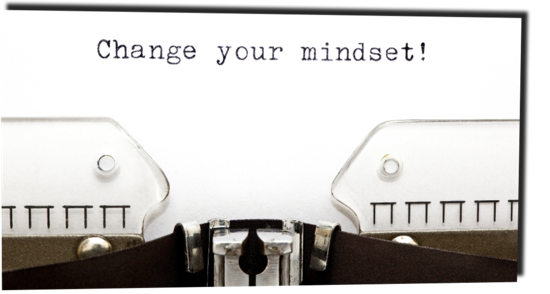When you look at people who are successful and happy, do you ever wonder, "What's their secret? Why do they get to have it all?”
The secret is simple: There is no secret. Most people we classify as successful will tell you there is no magic formula or golden ticket that has led them down the path to prosperity. To a large degree, it comes down to careful planning, smart choices and a great attitude.
Timeless lessons
If you browse the "books" category of my site, you'll notice that I review a lot of current (or at least recent) books on management, leadership, self-improvement, etc. This week, I though it would be fun to jump into the "wayback machine" and take a look at some of the best self-improvement books from the past.
There are plenty of well-known figures who have shared their strategies and tips for success, and we can increase our odds of success by reading and reflecting on their books. Famous motivational speakers like Tony Robbins, religious leaders like Joel Osteen and Ed Young and scholarly experts like David Schwartz have written books offering motivation, inspiration and sound advice to help anyone prosper.
The list of successful professionals who can offer significant insight into being successful and happy isn't limited to modern-day writers. If you're looking to change the trajectory of your life with regards to business, family, romantic relationships or spirituality, check out the advice from some of these gurus (by they way - each of the book titles below is a live link to the book on Amazon):
"Awaken the Giant Within" by Tony Robbins
You may have heard of Tony Robbins, or seen one of his infomercials on TV. In this book, he takes on mental, physical, emotional and financial health and gives us a lot to think about. Robbins is famous for laying out step-by-step plans to improve yourself, and this book is no different - the techniques are very good and practical. This book is 30 years old, but I think it stands the test of time, and so does Robbins. Now in his 50's, he has reached over 50 million people over his 30-year speaking career - that's about a million people per year of his life. Not too shabby.
"In the Zone" by Ed Young
Ed Young shares biblical principles about what it means to live a productive and rewarding life. Young is the founding pastor of Fellowship Church in Grapevine, Texas, and shares how and why we should avoid materialism, to increase the amount of hope and joy in our lives. "In the Zone" also gives actionable advice on escaping debt, achieving financial freedom and managing the resources we've been given.
"Rich Dad, Poor Dad" by Robert Kiyosaki
Robert Kiyosaki's well-known personal finance book discusses money from the perspective of two fathers. The poor/middle class dad works for his money, bringing home paychecks to sustain his family. The rich dad's money works for him. Kiyosaki discusses the philosophies that allowed him to retire at 47 and reveals actions you can take now to reach financial security and freedom. There are a bunch of interesting financial habits in this book, and you'll benefit even if you only apply a few of them. Good stuff.
"The Power of Positive Thinking" by Norman Vincent Peale
Norman Vincent Peale's inspirational classic has been translated into 12 languages and reprinted for a global audience. First published in 1952, this book outlines how to achieve popularity, overcome defeat, develop confidence and more. Peale believes a life rooted in joyful faith and a positive outlook can lead to these and he gives specific examples of how simple changes in your mental attitude can improve your life.
"How To Win Friends and Influence People" by Dale Carnegie
This one is a classic, for sure. Since it was first published back in 1936, Dale Carnegie's legendary motivational book has sold more than 15 million copies. At the heart of the book is a reassuring assertion: that communication, not brilliant insight, is what leads to success. Carnegie describes how readers can get the job they want and improve the job they have. As one of the books that pioneered modern self-improvement books, this is a must-read.





